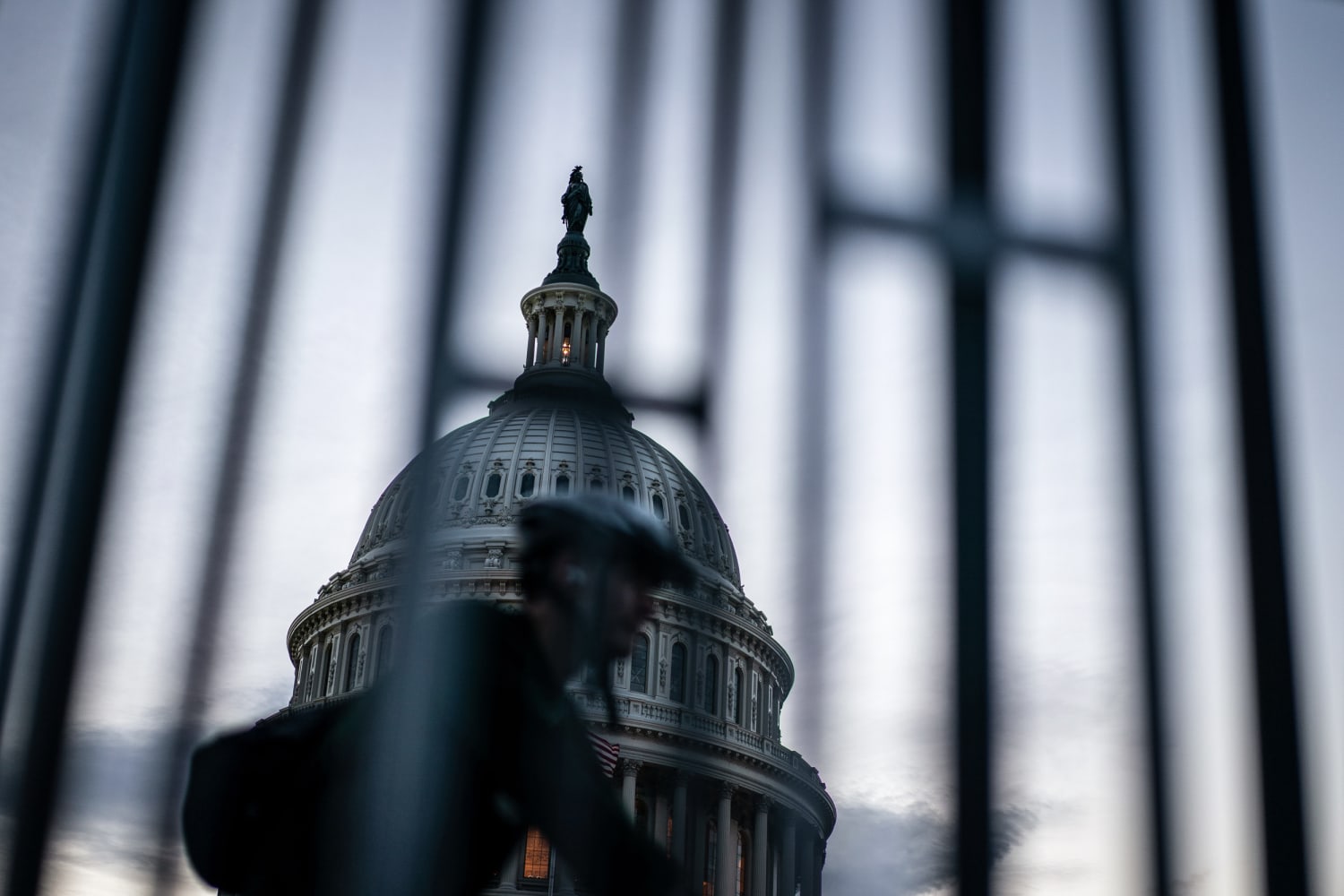WASHINGTON — The Biden administration faces an uphill battle to reauthorize a key surveillance tool, known as Section 702, before it expires at the end of the year as members of both parties of Congress push for big changes.
Section 702 of the Foreign Intelligence Surveillance Act, or FISA, allows the government to conduct targeted surveillance of foreign nationals living outside the U.S. without needing to obtain a warrant. It has become increasingly controversial over the years.
As recently as this month, a court opinion disclosed that FBI employees wrongly searched foreign surveillance data for the last names of a U.S. senator and a state senator. The opinion also said that another FBI employee ran a query using the Social Security number of a state judge who complained about alleged civil rights violations by a municipal chief of police.
Critics of Section 702 worry that its powers are too broad and allow for the “incidental” collection of data on U.S. citizens and that the provision is ripe for abuse.
What is Section 702 and how are Americans affected?
Section 702 was created following the Sept. 11 terrorist attacks and allows intelligence agencies to gather large amounts of data such as emails, phone calls, texts and other communications on foreigners living abroad, without a warrant.
As the provision currently stands, intelligence agencies cannot use warrantless Section 702 powers to target Americans, because that would violate the Fourth Amendment of the Constitution, which prohibits unreasonable searches and seizures. But data on U.S. citizens is still collected when they interact with a foreign surveillance target — that’s known as “incidental” collection.
Civil liberties organizations, such as the American Civil Liberties Union, have long opposed the the 702 provision, arguing that it has been used as a “backdoor” tool for gathering information on Americans and allows federal law enforcement to prosecute and imprison people for crimes, even if they’re not related to national security, based on information obtained without a warrant.
The FBI improperly searched for information in a U.S. database of foreign intelligence more than 278,000 times in 2020 and early 2021, including Americans involved in the Jan. 6 Capitol riot and those who participated in the 2020 protests following the murder of George Floyd, a court order showed.
The government says it uses the information to protect the U.S. and its allies from hostile foreign adversaries, such as terrorists, weapons dealers and spies. And the Biden administration has urged Congress to renew it, arguing that it is a necessary measure to keep Americans safe. According to a senior intelligence official, nearly 60% of the information in President Joe Biden’s presidential daily brief includes at least some information derived from Section 702.
The FBI has made recent changes to Section 702 to curb abuses and the White House on Monday released a report by the President’s Intelligence Advisory Board, which voted unanimously to support its reauthorization, while also recommending 13 reforms to address past mishandling.
National Security Advisor Jake Sullivan and Principal Deputy National Security Advisor Jon Finer said in a statement that Section 702 has allowed the U.S. to stop threats posed by China, Russia, terrorists and fentanyl traffickers.
“We agree with the unanimous conclusion reached by this group of independent, deeply experienced experts that failure to reauthorize Section 702 could be ‘one of the worst intelligence failures of our time,'” they said, quoting the report.
How do Democrats and Republicans view Section 702?
While there has been bipartisan support for Section 702 in the past, recent errors and misuses of it, as well as the current climate of skepticism toward intelligence agencies, has made its reauthorization far more challenging.
While Republicans supported Section 702 when it was created during the Bush administration, recent Republican criticism of the FBI for the investigation of former President Donald Trump and errors made during the probe of Russian ties to his 2016 presidential campaign have made way for steep opposition.
The provision has also faced opposition from Democrats who worry that it may hinder Americans’ civil liberties.
Lawmakers from both sides have said they won’t vote to renew the provision unless major changes are made in how the FBI uses foreign surveillance data to investigate Americans.
“I will only support the reauthorization of Section 702 if there are significant, significant reforms,” Senate Judiciary Committee Chairman Dick Durbin, D-Ill., said during a hearing in June. “And that means first and foremost addressing the warrantless surveillance of Americans in violation of the Fourth Amendment.”
Sen. Mike Lee, R-Utah, who has long pushed for changes to Section 702, said at the same hearing he was skeptical that federal law enforcement would use the power properly without new guardrails placed on it. “Why should we ever trust the FBI and the DOJ again to police themselves under FISA, when they’ve shown us repeatedly, for more than a decade, that they cannot be trusted to do so?”
Twenty-one privacy, civil rights and civil liberties organizations submitted a joint letter to the Senate last month demanding that Congress not reauthorize Section 702 without such “reforms” as imposing warrant requirements to “spy” on Americans and instituting a stronger judicial review process and safeguards for foreign targets who are unlikely to be involved in threats to national security.
Patrick Toomey, deputy director of the ACLU’s National Security Project, said in a statement that recent revelations of abuses — including that the FBI searched Section 702 data for the last names of a U.S. senator, a state senator and a judge — show how the surveillance program “is routinely used against Americans, immigrants, and people who are not accused of any wrongdoing.
“The FBI continues to break the rules put in place to protect Americans, running illegal searches on public officials including a U.S. senator, and it’s long past time for Congress to step in,” Toomey said.
How has the FBI responded to criticism?
The FBI has introduced changes in recent years that have led to “significant improvement,” FBI Director Christopher Wray said in a statement this month, adding that “Section 702 is critical in our fight against foreign adversaries.”
As a result, FBI searches for data on Americans plummeted. According to a report from the Office of the Director of National Intelligence, the number of FBI searches for citizens’ data dropped 94% between November 2021 and November 2022, from 3.4 million to about 204,000.
At a House Judiciary Committee hearing this month, Wray defended the provision and touted recent changes, saying, “We have had problems. And those problems are unacceptable and I’m determined with my leadership team to fix them. But those problems, almost entirely, predate those reforms.”
What happens next?
Congress has to act before the end of the year when Section 702 expires. Members of both parties have pushed for major changes and have held committee hearings in preparation. The last time Section 702 was renewed, in 2018, about one-third of members in the House and Senate voted against it.
Source: | This article originally belongs to Nbcnews.com











